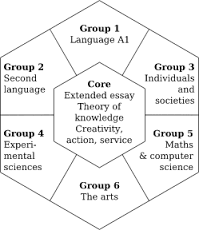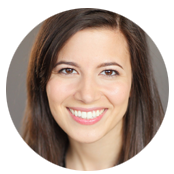
If you're reading this article, we assume you know a little bit about the International Baccalaureate (IB) program. If not, we encourage you to read our introductory guide to what this program entails.As a brief refresher, the IB program was started in the 1960s and has become a rigorous, internationally recognized diploma program that students all around the world can earn to gain entry into the university of their choice.
In the United States today, there are about 970 IB Diploma Programme high schools. At these schools, some students complete the full IB curriculum in pursuit of what's called an IB Diploma (which we explain in more detail below).
At some schools, students are allowed to take a couple of IB classes without being enrolled in the full IB curriculum. Ask your local IB school's IB coordinator whether this is permitted; you can find their contact information in our complete list of IB schools in the United States.
As an IB Diploma recipient myself, I'll discuss what it takes to complete the full IB curriculum and receive your IB Diploma.

2022 IB Exam Changes Due to COVID-19
Because of the ongoing COVID-19 (coronavirus) pandemic, the IB has decided to extend the adaptations which were put in place for 2021 to 2022. May 2022 IB assessments will have two routes, exam and non-exam, depending on which your school chooses. Stay up to date with the latest information on what this means for IB diplomas, course credit for IB classes, and more with our our IB COVID-19 FAQ article.
The IB currently intends to return to its pre-COVID exam format and schedule for May 2023.
The 2 Main Parts of the IB Diploma Programme Curriculum
There are two main components of the IB Curriculum: the class requirements, and the core.
Class Requirements
To earn an IB Diploma, you have to take courses from six subjects: one each from groups 1-5, and either one from group 6 or a substitute from groups 1-4. Here are all the courses available.
| IB Group | Group Name | Courses |
| 1 | Studies in Language and Literature |
|
| 2 | Language Acquisition |
|
| 3 | Individuals and Societies |
|
| 4 | Sciences |
|
| 5 | Mathematics |
|
| 6 | The Arts |
|
*Interdisciplinary subject that also counts for group 3 (individuals and societies)
For a detailed list of courses from each group with descriptions, check out our complete list of IB classes.
You must take at least three (but no more than four) classes at the Higher Level (HL); this means studying for a total of 240 hours. The rest of your classes will be taken at the Standard Level (SL), which entails 150 hours of studying.
Each class culminates in an exam, which is graded on a scale of 1-7, with a 4 considered passing and a 7 being the highest score possible. For more information on scoring, check out the IB website.

The Core
To receive your IB Diploma, you will also need to complete what is known as "the core." The core consists of three components:
- A class known as Theory of Knowledge
- An essay known as the Extended Essay
- A project known as Creativity, Activity, Service
Here's what each of these components entails.
#1: Theory of Knowledge (TOK)
Theory of Knowledge, or TOK, is a class that's on the more philosophical side. According to the IB, TOK "asks students to reflect on the nature of knowledge, and on how we know what we claim to know." Simply put, you're encouraged to think about not only what is important to you but also big world issues.
Note that there's no exam for this class. Instead, you write a 1,600-word essay and give an oral presentation. You can take TOK online through Pamoja Education.
Personally, I loved this class. I think your teacher is critical to enjoying the class (Mr. Fresco, you are the best!).
#2: Extended Essay
The Extended Essay is not a class but a 4,000-word mini-thesis. You choose a topic that needs to be approved by the IB (which isn't very difficult). You also get an advisor (an IB teacher preferably at your school, though you can get access to one at another school through Pamoja Education).
Be sure to write about something you enjoy because you'll be spending a lot of time on it. In my case, I loved British theatre, so I wrote about a revolution in post-WWII British theatre. #theatrenerd
I really encourage anyone who pursues an IB Diploma to take the Extended Essay seriously. Your extended essay could help you decide what major you want to pursue in college, especially if you pick a topic you’re passionate about. The Extended Essay could also help you get scholarships and even give you something to talk about during college interviews!
I ended up receiving a full-tuition merit scholarship to USC's School of Dramatic Arts program, and in my interview for the scholarship, I spoke passionately about my Extended Essay. I genuinely believe that this component of the IB Diploma Programme helped me get my scholarship.
#3: Creativity, Activity, Service (CAS) Project
CAS is a three-part project that requires you to engage in specific kinds of extracurriculars:
- Creativity: Getting involved in something creative, such as learning an instrument, acting in a play, writing a short story, etc. As long as you can argue that your activity is creative (you'll have to do a report on it), you can use it to fulfill your "creativity" requirement. For example, I acted in a few plays, which counted toward my creativity hours.
- Activity: This is generally a sports-related experience that could be anything outdoorsy like rock-climbing or hiking. I played on my school's varsity tennis team, which went toward my activity hours. If athletics isn’t your strong suit, even something like marching band will count! You could play on your school's tennis team, participate in a walk-a-thon, or take yoga classes to fulfill your activity hours requirement.
- Service: Think of this component as traditional community service. You could volunteer to feed people experiencing homelessness, host a fundraiser for brain cancer research, organize a drive to collect prom dresses for Becca's Closet, and so on.
Are These All the Requirements to Get Your IB Diploma?
In short, no. You also need to hit certain score markers on your exams in order to get the IB Diploma. Specifically, you must score 24 points or more between all your IB exams. If you do this, you will receive your diploma as long as you meet all the following requirements as well:
- All CAS requirements have been met
- There is no "N" awarded for TOK, the Extended Essay, or a contributing subject
- There is no grade E awarded for TOK and/or the Extended Essay
- There is no grade 1 in any subject or level
- There are no more than two grade 2s awarded (SL or HL)
- There are no more than three grade 3s or below awarded (SL or HL)
- At least 12 points have been gained on HL subjects (for candidates who register for four HL subjects, the three highest grades count)
- At least 9 points have been gained on SL subjects (students who register for two SL subjects must gain at least 5 points at SL)
- The final award committee has not given the candidate a penalty for academic misconduct

How Difficult Is It to Meet These IB Diploma Standards?
The international IB Diploma rate (the percentage of students who received IB Diplomas out of those who were Diploma candidates) is about 80%. This means that around 20% of students who complete the IB curriculum above do not receive an IB Diploma.
Furthermore, the IB Diploma rate varies drastically between schools. Some schools have 95% Diploma rates, while others have less than 5% Diploma rates, so we recommend contacting the IB school you're considering to find out its specific Diploma rate.
For more information, take a look at our full list of IB schools in the United States.

What's Next?
Trying to figure out what extracurriculars you should do? Learn more about participating in the Science Olympiad, starting a club, doing volunteer work, and joining Student Government.
Studying for the SAT? Then check out our complete guide to the SAT. If you're taking the SAT in the next month or so, get started with our guide to cramming for the exam.
Not sure where you want to go to college? Get advice on how to find your target school. Also, we can help you determine your target SAT score or target ACT score.











